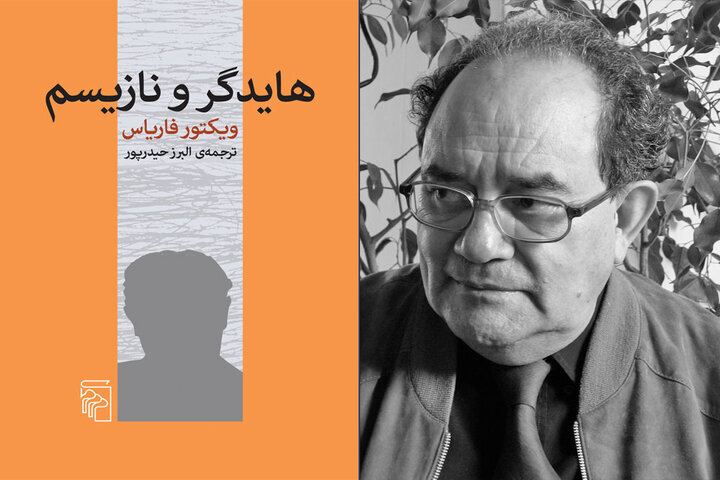“Heidegger And Nazism” at Iranian bookstores

TEHRAN- “Heidegger and Nazism” written by Chilean historian Victor Farias has recently been published in Persian.
Translated by Alborz Heidarpour, the book has been published by Markaz Publications in Tehran.
Originally published in French in 1987, Victor Farias' "Heidegger and Nazism" has ignited intense debate across Europe. This controversial work delves into the life and philosophy of Martin Heidegger, a pivotal figure in twentieth-century thought, uncovering the philosopher's substantial ties to Nazism throughout his career.
Farias meticulously investigates Heidegger's early alignment with National Socialism, challenging the assumption that he distanced himself from Hitler's regime prior to World War II. After over a decade of archival research, Farias presents compelling evidence of Heidegger’s initial fervor for Hitler's ideals and demonstrates how he later crafted a personal interpretation of National Socialism. This ideology, at the core of Heidegger's mature philosophical contributions, not only informed his tenure as rector at the University of Freiburg but also persisted throughout his life.
A key focus of Farias' study is the allegation of Heidegger’s lifelong anti-Semitism. He reveals that Heidegger spoke positively of Hitler among colleagues and maintained a silence concerning Nazi atrocities, failing to recant his previous beliefs even after the war. While Heidegger was once interpreted as naively accepting the Third Reich, Farias reframes him as the only major philosopher who unabashedly embraced Nazism—a stark embodiment of modernity’s "absolute evil."
Farias’ investigation disrupts the established narrative surrounding Heidegger, raising critical inquiries about the connection between politics and philosophy. The book interrogates the presumed correlation between philosophical integrity and ethical virtue, compelling readers to grapple with the implications of Heidegger's political affiliations on his philosophical legacy. It suggests that Heidegger's existential and hermeneutic approach might not only be indefensible but also alarmingly conducive to the kind of "principled" distortions favored by fascist ideology.
By contextualizing Heidegger’s work within the framework of his political beliefs, "Heidegger and Nazism" serves as a call to action for the philosophical community, urging a thorough reassessment of Heidegger's influence. It invites readers to reconsider what Heidegger's life and thought imply about the nature of philosophical inquiry and its potential for complicity in moral failures. As a significant historical critique, this book reshapes the dialogue around one of philosophy's most prominent yet contentious figures.
Victor Ernesto Farias Soto is a prominent historian known for his controversial book "Heidegger and Nazism.” He graduated from the Catholic University of Chile in 1961 and later pursued a doctorate in Philosophy in Freiburg, Germany, studying under figures like Martin Heidegger and Rainer Marten. After returning to Chile in 1971, Farias fled to Germany following the 1973 coup against President Allende. He became a researcher and professor at the Free University of Berlin, where he worked until 2006. In "Heidegger and Nazism," Farias, a former student of Heidegger, argues that Heidegger's philosophy possesses fascist elements. His work reflects his German philosophical education and political alignment with the Chilean left, while also acknowledging Chile’s role as a refuge for Nazis after the war. The book gained significant international attention, being published in 14 countries.
SAB/
